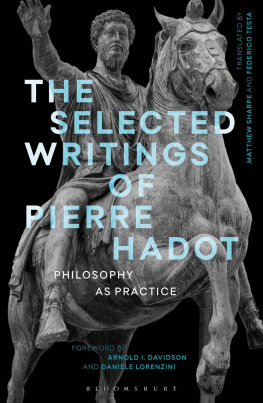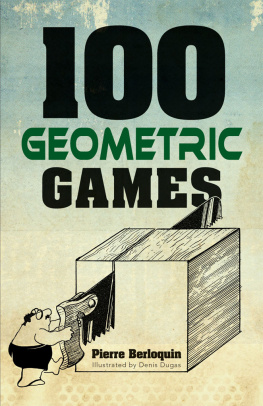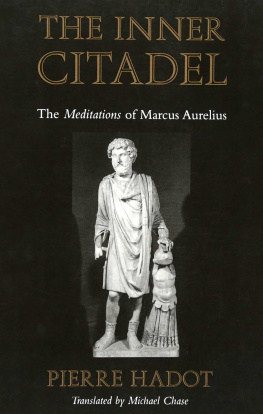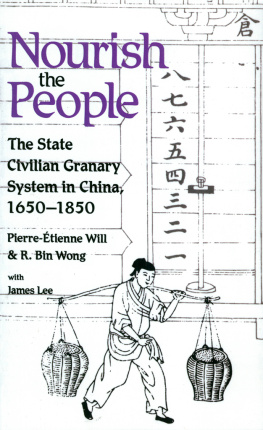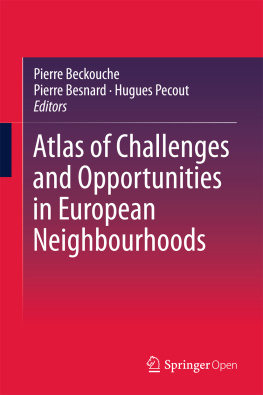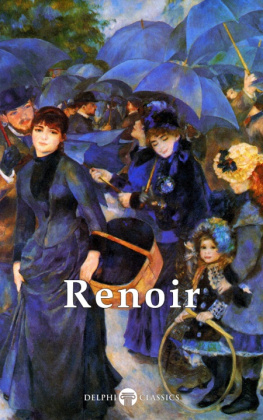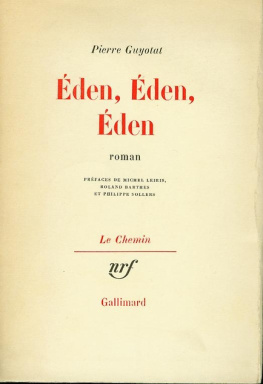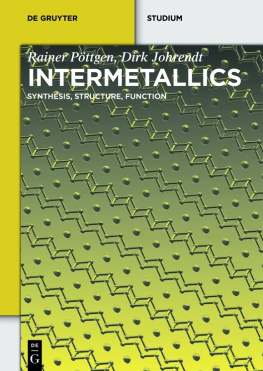Hadot Pierre - The Selected Writings of Pierre Hadot
Here you can read online Hadot Pierre - The Selected Writings of Pierre Hadot full text of the book (entire story) in english for free. Download pdf and epub, get meaning, cover and reviews about this ebook. year: 2020, publisher: Bloomsbury Publishing Plc, genre: Religion. Description of the work, (preface) as well as reviews are available. Best literature library LitArk.com created for fans of good reading and offers a wide selection of genres:
Romance novel
Science fiction
Adventure
Detective
Science
History
Home and family
Prose
Art
Politics
Computer
Non-fiction
Religion
Business
Children
Humor
Choose a favorite category and find really read worthwhile books. Enjoy immersion in the world of imagination, feel the emotions of the characters or learn something new for yourself, make an fascinating discovery.
- Book:The Selected Writings of Pierre Hadot
- Author:
- Publisher:Bloomsbury Publishing Plc
- Genre:
- Year:2020
- Rating:4 / 5
- Favourites:Add to favourites
- Your mark:
- 80
- 1
- 2
- 3
- 4
- 5
The Selected Writings of Pierre Hadot: summary, description and annotation
We offer to read an annotation, description, summary or preface (depends on what the author of the book "The Selected Writings of Pierre Hadot" wrote himself). If you haven't found the necessary information about the book — write in the comments, we will try to find it.
The Selected Writings of Pierre Hadot — read online for free the complete book (whole text) full work
Below is the text of the book, divided by pages. System saving the place of the last page read, allows you to conveniently read the book "The Selected Writings of Pierre Hadot" online for free, without having to search again every time where you left off. Put a bookmark, and you can go to the page where you finished reading at any time.
Font size:
Interval:
Bookmark:

WRITINGS OF
PIERRE HADOT
Re-inventing Philosophy as a Way of Life
Series editors: Keith Ansell-Pearson, Matthew Sharpe, and Michael Ure
For the most part, academic philosophy is considered a purely theoretical discipline that aims at systematic knowledge; contemporary philosophers do not, as a rule, think that they or their audience will lead better lives by doing philosophy. Recently, however, we have seen a powerful resurgence of interest in the countervailing ancient view that philosophy facilitates human flourishing. Philosophy, Seneca famously stated, teaches us doing, not saying. It aims to transform how we live. This ancient ideal has continually been reinvented, from the Renaissance through to late modernity and is now central to contemporary debates about philosophys role and future.
This series is the first synoptic study of the re-inventions of the idea of philosophy as an ethical pursuit or way of life. Collectively and individually, the books in this series will answer the following questions:
How have philosophers reanimated the ancient model of philosophy? How have they revised ancient assumptions, concepts and practices in the light of wider cultural shifts in the modern world? What new ideas of the good life and new arts, exercises, disciplines and consolations have they formulated?
Do these reinventions successfully re-establish the idea that philosophy can transform our lives? What are the standard criticisms of this philosophical ambition and how have they been addressed?
What are the implications for these new versions of philosophy as a way of life for contemporary issues that concern the nature of philosophy, its procedures, limits, ends, and its relationship to wider society?
ALSO AVAILABLE FROM BLOOMSBURY
Bergson: Thinking Beyond the Human Condition, Keith Ansell Pearson
The Pornographic Age, Alain Badiou
Happiness, Alain Badiou
The Incandescent, Michel Serres
Hominescence, Michel Serres

Pierre Hadot has transformed our idea not only of ancient philosophy, but of philosophy as such. From his early works on Neoplatonic philosophy to his last book on Goethe and the tradition of spiritual exercises, Hadot has made us see and understand the value of ancient philosophy for the entire history of philosophy. According to Hadot, in ancient philosophy, all philosophical discourses, theories and abstractions are in the service of the philosophical lifethe concrete practice of philosophy. Philosophy without flesh and soul, that is, without philosophers, is but an intellectual pastime, since it lacks the dimension of an existential choice to live in a certain way. Hadot summarises his fundamental idea as follows:
[A]ll ancient philosophical schools refused to consider philosophical activity as purely intellectual, purely formal or theoretical. Rather, the ancients considered philosophy as a choice which committed a persons entire life and soul. This is why the exercise of philosophy was not solely intellectual but could also be spiritual. The philosopher did not finally form his disciples only in the sense of a knowing how to speak or to debate, but a knowing how to live in the strongest and noblest sense of the term. It is to an art of living, a way of life that the ancient philosophers invited their disciples.
This spiritual force of philosophy is not simply located in its ethical dimension. The practice of philosophy is found within each of its traditional disciplines: ethics, logic, physics. Philosophy is at one and the same time a practiced ethics, a practiced logic and a practiced physics. Each part of philosophy comprises a theoretical discourse and a lived practice. Hence:
lived philosophy is not limited to the practice of moral duties. It also involves a control of the activity of thought and a cosmic consciousness. Lived philosophy is thus a practice or a way of life which embraces all human activity; it is not only an ethics in the narrow sense of the word.
Living philosophy requires an appeal to the guidance of an exemplary figure who, in antiquity, was called a sage: The philosopher will ask himself in all circumstances: what would the sage do in this circumstance? Rather:
the figure of the perfect sage ultimately corresponds to the idealisation, the transfiguration or, as we might say, the canonisation of very concrete figures, who are these righteous men [hommes de bien], these sages living amongst human beings.
It thus becomes possible to understand why, in antiquity, biography was a philosophical genre of great value. The concept of figure, so important for Hadots interpretation, is strictly linked to this vision of philosophy. The exemplary life of the sage (a state of ideal and transcendent perfection) and the exemplary life of the philosopher (at least a relative perfection, a limited wisdom) delineate not merely an example (too particular and individual) but a figure, namely a model, an ideal, that orients and inspires the way of life.
As the figure of the ancient sage is a model that orients human conduct, Hadots own work constitutes for us both the model of a radically new way of writing the history of philosophy, and of practicing philosophy as such. Indeed, in order not to impose our own, modern categories and prejudices on the ancient texts that we read, and thus allow them to transform our idea of what philosophy is, we need to consider the activity of reading itself as a spiritual exercise. Hadot teaches us how to re-read the history of philosophy in order to create space for the idea of philosophy as a way of life.
When one reads a philosophical textwhether written by Plato, Marcus Aurelius, Plotinus, Descartes, or Merleau-Pontyit is critical, Hadot argues, that one tries to undo oneself from ones subjectivity, thus overcoming ones prejudices, habits and passions. And although a state of perfect objectivity is probably unattainable, it is still (as in the case of the figure of the sage) an ideal that one must attempt to attain through a certain practice. If something like wisdom is still possible today, it depends, at least within the practice of philosophy, on the practice of this spiritual exercise.
Learning to read is a spiritual exercise that requires us to move away from the idea of an egoistic reading and to conceive of the practice of reading philosophical texts as essentially dialogicalthe foundation of a genuine encounter both with others (the authors of the texts) and with oneself that transforms our way of seeing the world and of living. Thus, Hadot invites us to conceive of each philosophical text as a living reality, the result of an intellectual and social practice that we must take into account if we want to be able to really understand the force of the words we read. Just as a sage can be an exemplary figure, so a dialogical text can also become an active exemplar. Self-formation includes reading, meditating on, such exemplary texts. Hadot shows us how to engage in this practice of self-(trans)formative reading. At the end of his article Spiritual Exercises, quoting Vauvenargues, Hadot expresses the wish that his article be able to make his readers love a few old truths, and he continues:
Old truths There are some truths whose meaning will never be exhausted by the generations of man. It is not that they are difficult; on the contrary, they are often extremely simple. Often, they even appear to be banal. Yet for their meaning to be understood, these truths must be
Next pageFont size:
Interval:
Bookmark:
Similar books «The Selected Writings of Pierre Hadot»
Look at similar books to The Selected Writings of Pierre Hadot. We have selected literature similar in name and meaning in the hope of providing readers with more options to find new, interesting, not yet read works.
Discussion, reviews of the book The Selected Writings of Pierre Hadot and just readers' own opinions. Leave your comments, write what you think about the work, its meaning or the main characters. Specify what exactly you liked and what you didn't like, and why you think so.

